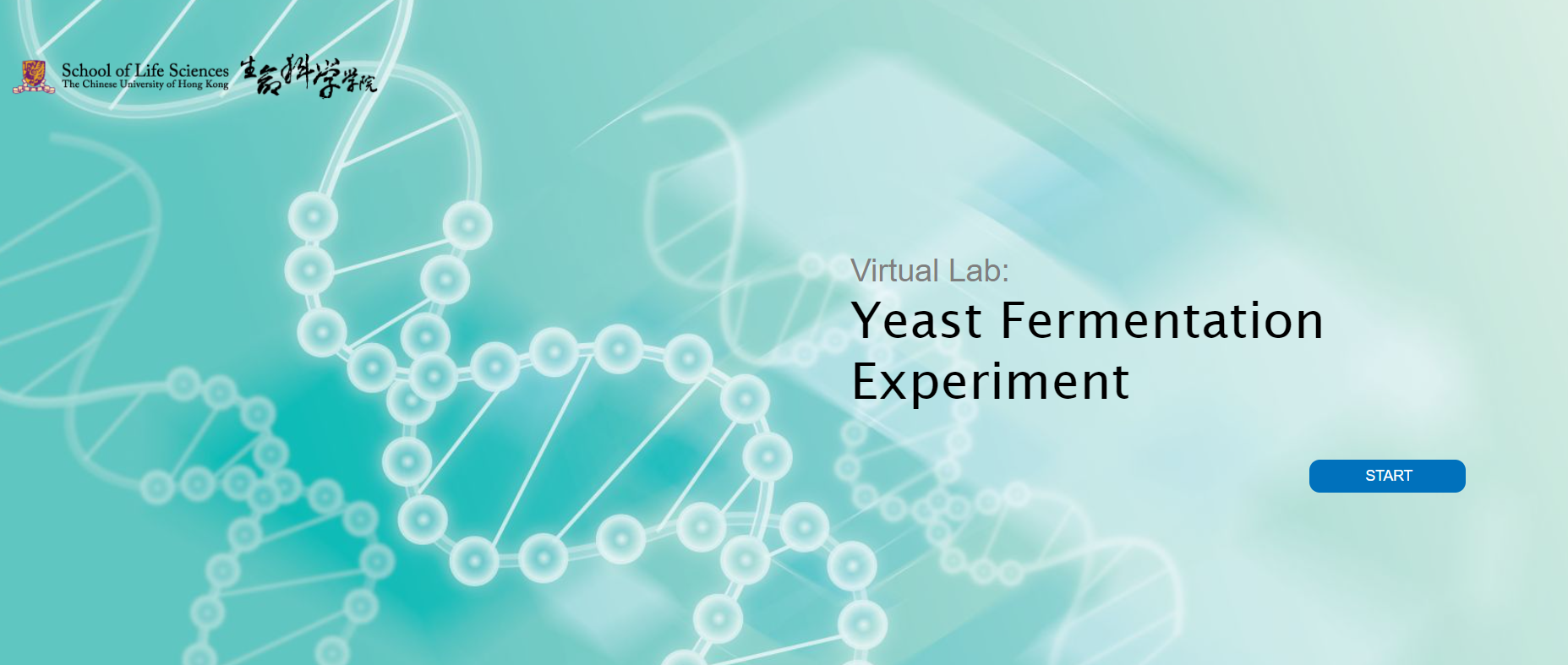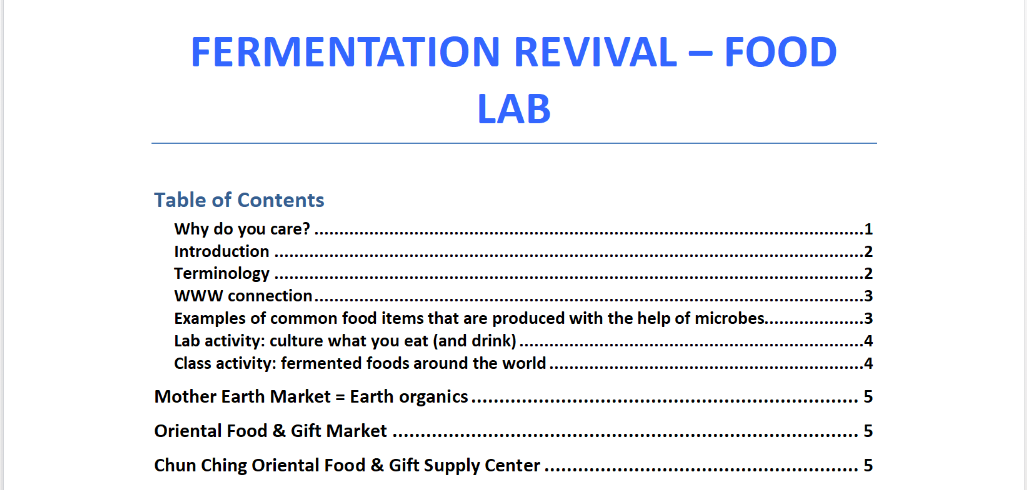Modules – Skills & Tools
Food Lab
Background Information
WHY SHOULD YOU CARE ABOUT…
This module must be broke up into two divergent, yet related topics: food born pathogens and fermented foods. The way in how the two subjects are connected is that fermentation is an ancient way of food preservation. Due to the acid and other byproducts (ethanol) produced by a large variety of microbes. Fermentation of food and dietary health implications is a fascinating research area with new knowledge, allowing us to understand the intricate ecology of our diet, lifestyle, gut microbiome and mental health.
Although the health benefits of fermented foods are nothing new, the scientific – and popular – literature are currently full of recent findings of the importance of a healthy gut microflora and the implications to diabetes IBS (irritable bowel syndrome), immune system, memory, behavior – you name it. Probably the most important correlation of a healthy gut microflora is connected to diet. It is indicative that adding probiotics and prebiotics to your diet on a regular basis will have a positive outcome on your overall health.
Humans have produced and consumed fermented food items as long as humans have existed, since ancient time, harnessing power of microbes.
Dr. Oli in a market in Japan tasting fermented food (left) and at the market in Kathmandu, Nepal, eating local homemade yogurt (right).
Access OpenStax: 1.1 What Our Ancestors Knew and 8.4 Fermentation
Learning Goals
After completing this module, students will be able to:
- Recall new vocabulary and definitions that pertain to this module.
- Explain the importance and pathways of microbial fermentation products to food/beverage production (e.g., bread, cheese, yogurt, wine, beer, etc.).
- Describe common methods used to maintain food safety and name important food pathogens.
- Name microbes used in food production and recall how to culture microbes collected from fresh foods to compare food handling techniques.
- Recall the importance of the Gut-Brain Axis.
- Prepare your own fermented food or recipe collection.
- Name the most important pathogens that are responsible for food poisoning
History Connections
Check out the Nobel Prize for Ehrlich and Metchnikoff (1845-1916)
Virtual Lab Simulations
Virtual Activity: Yeast Fermentation Lab
Online Lab
ACTIVITY #1: Balloon activity
ACTIVITY #2: Make your own ferment – yogurt, kombucha or anything else you like
ACTIVITY #3: Fermented food and cultural connections
In-Person Lab
Activity: Fermentation Revival – Food Lab
Resources
Take a look at the appropriate module for the vocabulary that is being tested: Microbiology @ UF Lab Terminology Quizlet.



